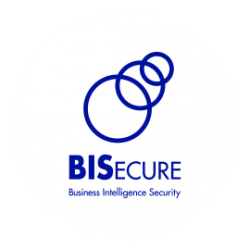
Creating a “secure” workplace culture.
It is never more true than when it pertains to Cyber Security.
We’ve all heard the saying, “Culture eats Process for breakfast”. In other words, you can have all the processes you want in place, but if the workplace culture doesn’t support the processes happening, they never will.
You can have as many processes in place as you want, but if you have a workplace culture, where staff are “shamed”, belittled or intimidated for security indiscretions, welllll…, you’ve already lost the battle I’m sorry to say.
In an environment where staff are in some way belittled for any security related incidents (opening a phishing email, being the object of a targeted attack, getting malware on their work station or server profile, etc, etc), most people will do the same thing. They’ll avoid being belittled of course.
In other words, they’ll try their hardest to cover up the indiscretion. They’ll avoid being associated with any security related incident at all costs. And why wouldn’t they. They know the “consequences…”
What to do about it.
So what is the alternative? We all know security incidents are bad, right? The media is constantly banging on (mostly inaccurately) about various security incidents. Who the latest victim is, or some other sensationalised, inaccurate story.
And of course, everyone hates being the person that clicked on the link in the phishing email, or went to the site infected with malvertising, etc. Even the IT guy who left his companies website exposed to SQLi or XSS attacks.
But what about if we change that culture? What about being rewarded (or at the very least thanked) for finding the spear phishing, clone phishing or whaling attack email and notifying your staff mates and IT? What if there was a demonstrable benefit to quickly notifying your IT specialists if you suspect your devices have been compromised. What if there was even some sort of game and reward associated with prompt action regarding any security incident?
Now you have what we like to call a warmware firewall. An early warning and detection system to rival the best NextGen, GenIV, AI, [insert other meaningless sales term here] Firewall available. Now we have staff and IT motivated to find, notify, and help eliminate Cyber security threats as soon as they’re detected or even suspected.
So how does this work in practice
Humans (the warmware ones we’ve already mentioned) are the ideal firewall. They’re self learning, they possess AI (Actual Intelligence as opposed to that other sort), and they’re motivated to help naturally as opposed to programmatically.
With some simple and ongoing training, and some motivation (Warm fuzzy, financial or otherwise) they’re the perfect resource to build significant resilience to your Cyber Defense systems.
Example
Here’s an example of how I think this might work, both before and after culture change…
A users inadvertently follows a link in an innocuous (or even obvious) looking email.
- Before culture change
- User thinks “last time Bob mentioned something like this the IT guys laughed at him, and everyone else gave him a hard time for being so ‘stupid’. I’m just going to shut up. If it has done any damage, someone else might notice it and, it won’t get traced back to me. If it does, I’ll just deny it.”
- User shuts up and just keeps working albeit with more perspiration than before.
- Eventually IT department finds that nightly backups are getting filled with strange files.
- Investigation reveals most of their file system has been encrypted and held for ransom.
- It’s taken so long to discover that the encrypted files have written over all the “good Files”
- Company is forced to negotiate with Cyber Criminals to try to recover their encrypted files. Unsuccessfully!
- Everyone hopes it wasn’t their fault. But it doesn’t really matter as they probably won’t have jobs next week anyway.
- After Culture change to a Security Rewarding culture
- User thinks “I better tell IT and team straight away!”
- User immediately logs off and turns computer off, calls IT.
- Problem is rectified with very little damage to company infrastructure.
- User is rewarded with new Mercedes, or TimTams in the ‘fridge [or insert more practical reward of your choice here…] for their quick action saving the company from extinction.
Some things I think staff should be rewarded for…
There’s obviously no point just creating white noise of false positive alerts. We need to encourage staff to be alert to certain (and ever changing) events to makes this system work. But at the top of this list needs to be the end to victimisation (or vilification) of people for reporting issues.
So if users or staff make a false positive report, use the opportunity to encourage them and maybe even educate a little on what to look for in the future. But if they alert you or others to a real issue. Reward them! It’s the best firewall you’ll ever purchase.
A (very non-exhaustive) rewards list…
- Users who use good Password hygiene…
- who use a Password Manager to store their myriad of passwords for various sites. (we recommend either Keepass or 1Password .)
- who don’t use the same username/password combination on multiple sites
- who use complex passwords (16 characters with many different types of characters)
- Who change their passwords regularly.
- IT People finding vulnerabilities and patching.
- Users or IT Staff finding un-patched browsers, Apps, or OSs
- IT Staff noticing unauthorised devices on their networks.
- Users finding scams or phishing attempt and alerting others.
- emails with dodgy attachments
- emails with suspect links
- emails from suppliers or contractors that are “unusual or unexpected”.
- AGL electricity bills when you don’t use AGL.
- Emails that seem to know a lot about you from people you don’t know.
- Parcel delivery notifications.
- Overly amorous offers from unknown people.
- I could go on all day here. The point is if you find them. Let others know that it is suspect, so they may be able to spot it next time.
- Users notifying management about unusual behavior (other staff or their own workstation)
- Someone copying large quantities of data to USB drives.
- Their own computer behaving unusually after visiting a site ( weird pop up etc.)
- Their computer behaving unusually after opening an email or clicking on a link.
- e.g. “Nothing seemed to happen when I opened the document.”
- “it asked me if I wanted to enable Macros”
- strange popup windows appearing.
- It took me to a completely different site than what I was expecting
- Finding a file that looks like it has been encrypted, or a file that now has a weird extension
- e.g. .enc or .locky when it should be .xlsx
- Users finding that their browser or operating system is out of date or has patches ready to be applied that they think IT may be unaware of.
- Users finding errors when accessing websites. (e.g. “Flash player is out of date”)
- users finding your company info in places it shouldn’t be.
- The list could go on and on. Maybe create your own and share it with us.
The bottom line is, let’s stop the pointless practice of shaming staff and users who have either made a mistake or inadvertently done “the wrong thing”, and start rewarding our precious “Warmware Firewalls” for their great work in helping to build the defenses of our businesses.
You have absolutely nothing to lose with this approach. This is a secure culture.
Contact our office for more information on our Workplace Cyber Awareness programs, or any other Cyber security Related issues.
Stay Safe
Ross Marston

